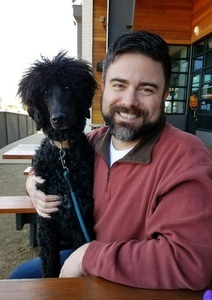7750604
Myths and Theories of Aging
Descripción
Sin etiquetas
Test por Ben Williams, actualizado hace más de 1 año
Más
Menos

|
Creado por Ben Williams
hace alrededor de 7 años
|
|
Resumen del Recurso
Pregunta 1
Pregunta
Florida, Pennsylvania, and West Virginia have the highest proportions of persons >65 years old.
Respuesta
- True
- False
Pregunta 2
Pregunta
The oldest old (those >85 years) is the fastest growing segment of the population.
Respuesta
- True
- False
Pregunta 3
Pregunta
Most older persons live alone.
Respuesta
- True
- False
Pregunta 4
Pregunta
The older population is more racially diverse than the general population, with the greatest increase among Hispanics.
Respuesta
- True
- False
Pregunta 5
Pregunta
Life expectancy for blacks and whites is nearly equal at age 85.
Respuesta
- True
- False
Pregunta 6
Pregunta
Heart disease, cancer and stroke together account for about 70% of deaths among older adults.
Respuesta
- True
- False
Pregunta 7
Pregunta
About 20% of community-dwelling elders need help with one or more ADLs.
Respuesta
- True
- False
Pregunta 8
Pregunta
The most common chronic condition in the elderly is hypertension.
Respuesta
- True
- False
Pregunta 9
Pregunta
About 25% of the older population will reside in a nursing home.
Respuesta
- True
- False
Pregunta 10
Pregunta
Over 25% of total Medicare expenditures for a given year go to enrollees who are in the last year of life.
Respuesta
- True
- False
Pregunta 11
Pregunta
The majority of older Americans describe themselves as very satisfied with life.
Respuesta
- True
- False
Pregunta 12
Pregunta
About 3/4 of elders, ages 75-84, report having no disabilities.
Respuesta
- True
- False
Pregunta 13
Pregunta
In case of severe disability, <10% of the elderly want to receive long-term care from a family member.
Respuesta
- True
- False
Pregunta 14
Pregunta
Older Americans take an average of 3 medications at any one time.
Respuesta
- True
- False
Pregunta 15
Pregunta
Less than one-half of home health care of elders is provided as informal support by family members.
Respuesta
- True
- False
Pregunta 16
Pregunta
65% of elder abuse is between spouses with elderly husbands abused twice as often as elderly wives.
Respuesta
- True
- False
Pregunta 17
Pregunta
Older drivers have higher collision rates per mile driven than any other age group.
Respuesta
- True
- False
Pregunta 18
Pregunta
At 65, 30% of men report regular sexual activity.
Respuesta
- True
- False
Pregunta 19
Pregunta
the changes due solely to the aging process, uncomplicated by damage from environment, lifestyle or disease.
Respuesta
-
Successful Aging
-
Usual Aging
-
Senescence
Pregunta 20
Pregunta
Changes due to the combined effects of the aging process and of disease and adverse environmental and lifestyle factors.
Respuesta
-
Successful Aging
-
Usual Aging
-
Senescence
Pregunta 21
Pregunta
The nonreversible, deteriorative changes in aged organisms that predispose them to fatal disease and death.
Respuesta
-
Successful Aging
-
Usual Aging
-
Senescence
Pregunta 22
Pregunta
Select the 3 comments that apply to the Hayflick Limit Theory of Aging
Respuesta
-
Once a critical number of replications is reached, cells stop dividing.
-
Telomeres at the end of chromosomes shorten with each cell division.
-
“Immortal” cells avoid telomere shortening due to enzyme telomerase.
-
Age pigments (lipofuscin) seen at microscopic levels of body tissues.
-
Rate-of-living theory – longevity is inversely proportional to metabolic rate.
-
Progressive accumulation of mutations produces random chromosome damage.
-
The immune system no longer recognizes some of its own members and becomes self-destructive.
Pregunta 23
Pregunta
Select the 3 correct notes about the Free-Radical Theory of Aging.
Respuesta
-
Free-radical reactions implicated in aging process as well as disorders such as atherosclerosis, Alzheimer’s disease, Parkinson’s disease, and cataracts.
-
Free-radical reactions are not related to atherosclerosis, Alzheimer’s disease, Parkinson’s disease, or cataracts.
-
Age pigments (lipofuscin) seen at microscopic levels of body tissues.
-
Antioxidant nutrients appear to be FR inhibitors.
-
Once a critical number of replications is reached, cells stop dividing.
-
Caloric restriction while maintaining essential nutrients decreases metabolic rate.
-
Aging is a nonrandom phenomenon.
Pregunta 24
Pregunta
Select the 2 correct notes about the Somatic Mutation Theory of Aging.
Respuesta
-
Progressive accumulation of mutations produces random chromosome damage.
-
Aging is a nonrandom phenomenon.
-
Congenital mutations eventually propagate to all cells.
Pregunta 25
Pregunta
According to the Cross-Linkage Theory of Aging, Cross-linkage of large fat molecules within the body (eg. collagen, elastin, and DNA) is responsible for aging.
Respuesta
- True
- False
Pregunta 26
Pregunta
The following concepts are part of which theory of aging:
Self-concept depends on how one performs in daily activities and the way others react to the person.
Sense of self, ability to mediate between self and society, and value to society.
Respuesta
-
Disengagement Theory
-
Activity Theory
-
Social Reconstruction Theory
Pregunta 27
Pregunta
Successful Aging seldom brings drastic changes in self-concept or self-esteem.
Respuesta
- True
- False
Pregunta 28
Pregunta
Select the 3 actions that positively influence the aging process and enhance quality of life in later years, according to the MacArthur Foundation Study of Successful Aging.
Respuesta
-
Avoid Disease and Disability
-
Maintain High Cognitive and Physical Function
-
Stay Involved With Life and Living
-
Eat lots of Fruits and Vegetables
-
Live at Home as Long as Possible
-
Read a Book every Week
¿Quieres crear tus propios Tests gratis con GoConqr? Más información.
